Solidarity actions around the world: May 21 celebrated the Day of Political Prisoners in Belarus Photo
On May 21, declared by Viasna human rights defenders as the Day of Political Prisoners in Belarus, actions in memory of Vitold Ashurak who died in prison and in solidarity with more than 1200 political prisoners took place in different cities and countries of the world.
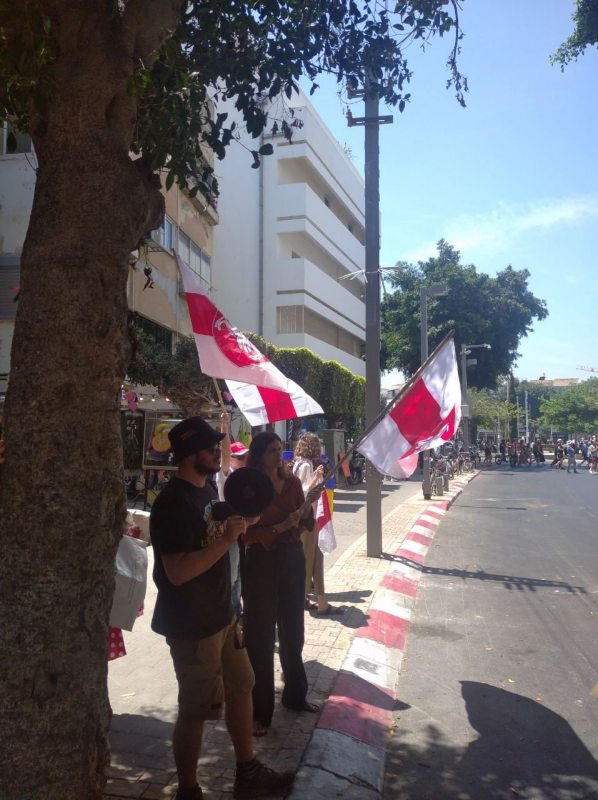
- Tel Aviv action
In Tel Aviv, Belarusians gathered for a rally on May 20 near the Belarusian Embassy to honor the memory of Vitold.
Minor actions of solidarity with political prisoners were also held in various cities of Belarus.
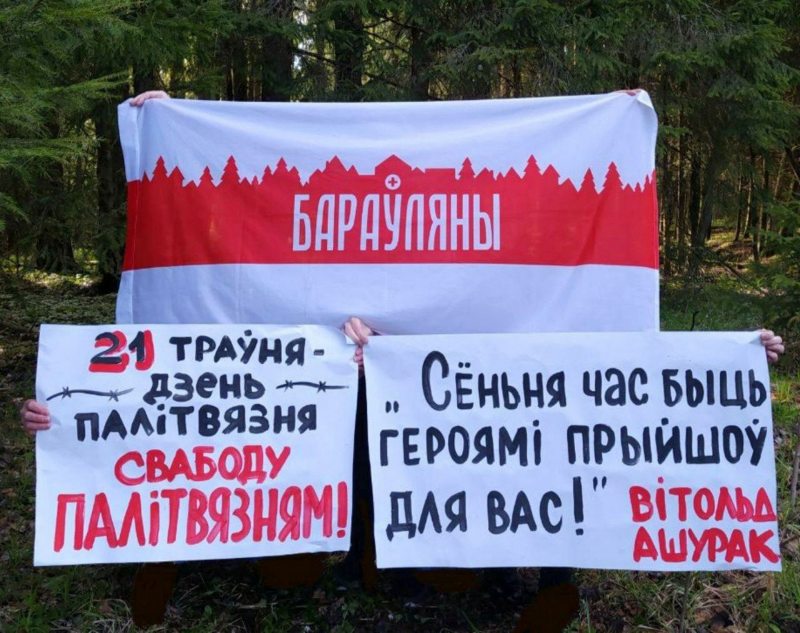
- Action in Minsk
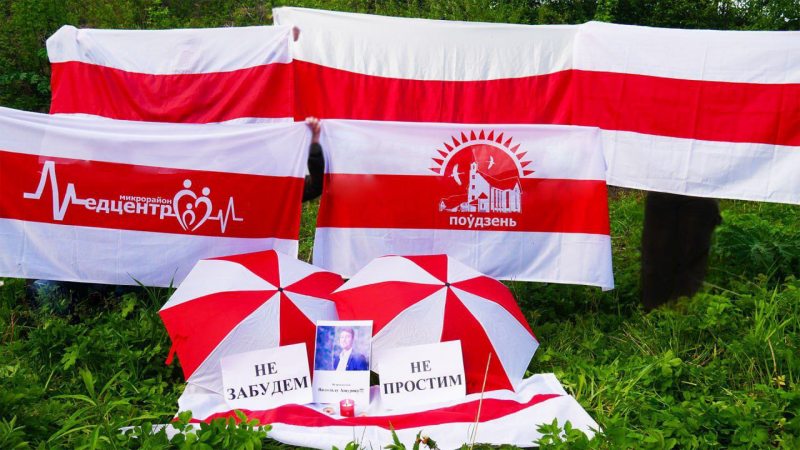
- Action in Viciebsk
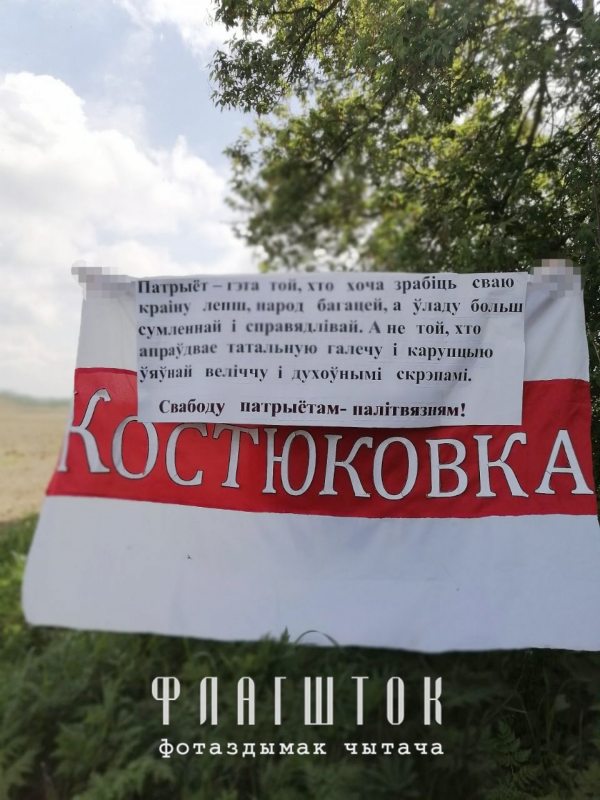
- Action in Homieĺ
Those who suffered from the regime were commemorated in the Belarusian Youth Hub in Warsaw, Poland. Tsikhan Kliukach, 19, and Daniil Kasenka, 26, told how and why they ended up in prison and became political prisoners, as well as in what conditions thousands of Belarusians are behind bars for political reasons.
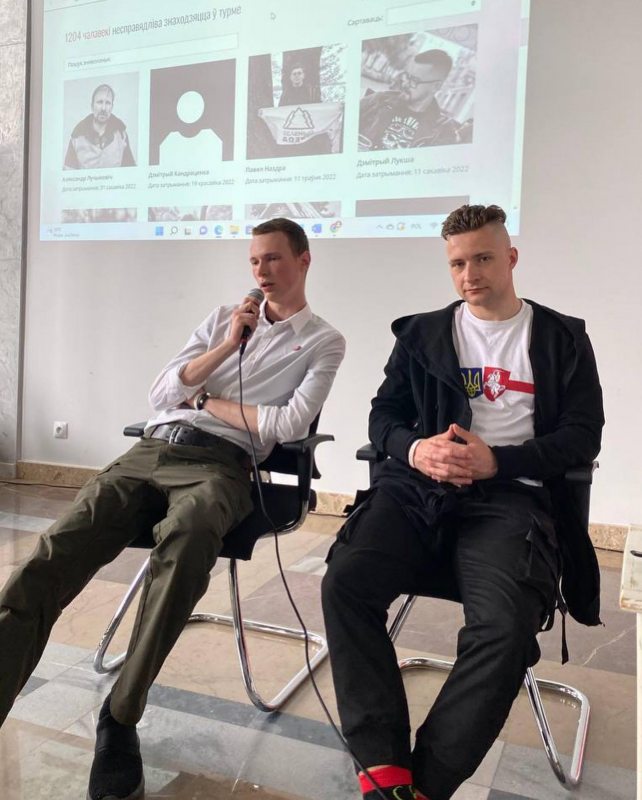
- Tsikhan Kliukach and Daniil Kasenka in the Belarusian Youth Hub in Warsaw
In addition, for two nights, on May 20 and 21, portraits of political prisoners in Belarus were projected on the Hub building.
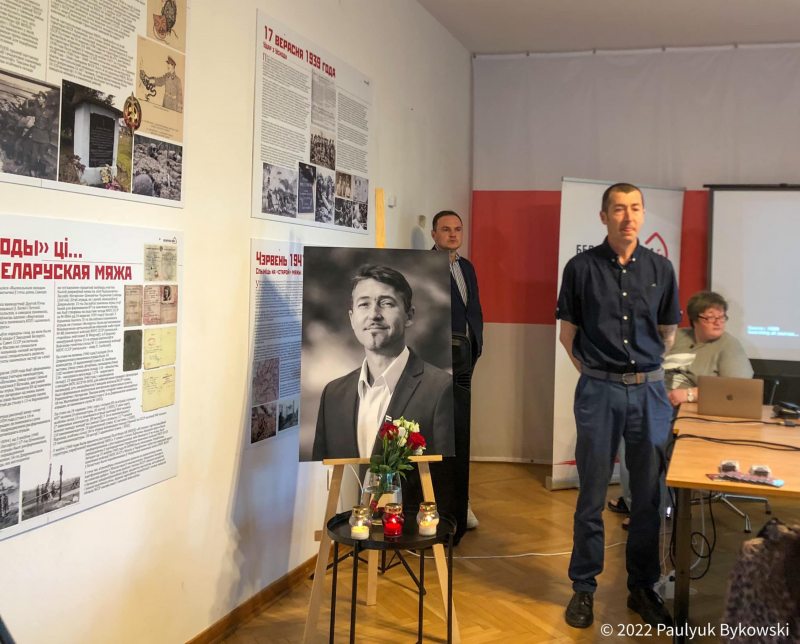
- Andrei Ashurak at the event in memory of Vitold. Photo: Pauliuk Bykouski
Also in Warsaw, a memorial event in honor of a hero of Belarus, Vitold Ashurak was held, where Vitold's brother Andrei, as well as his friends and allies, spoke.
In Krakow, a solidarity action took place at the Main market square near Adam Mickiewicz Monument.
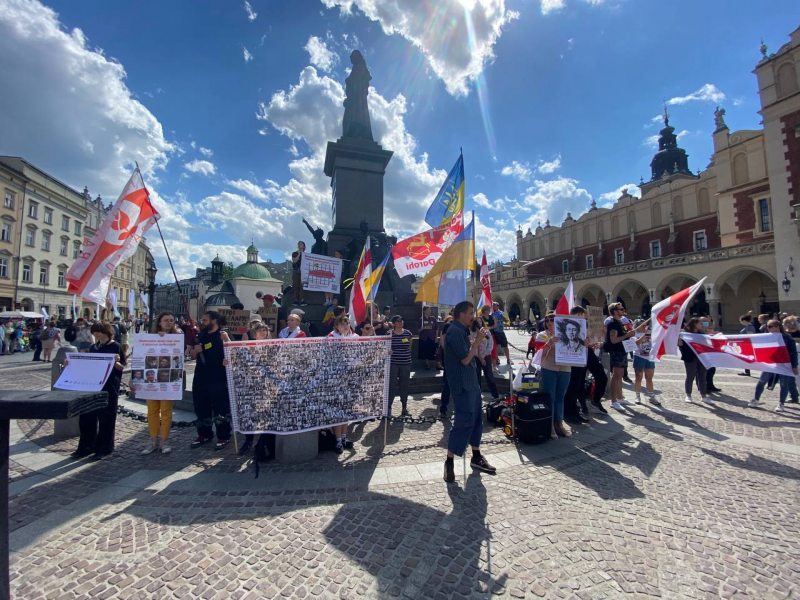
- Krakow action. Photo: Euroradio
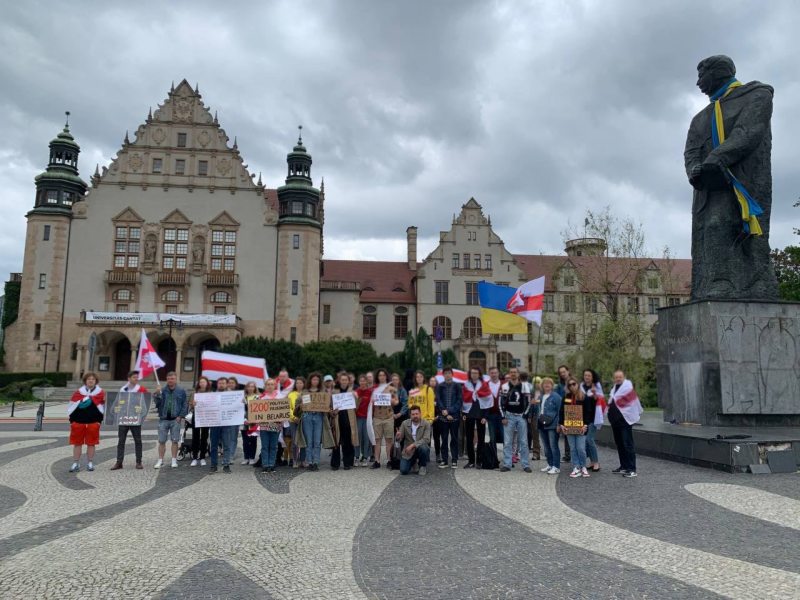
- Action in Poznan
There was also a solidarity action in Poznan.
On May 22, a special service in memory of Vitold Ashurak took place in St. Alexander's Church, Warsaw. After the service, people with posters and a banner with Vitold's portrait reading ‘Vitold Ashurak – Hero of Belarus’ marched to the Copernicus monument.
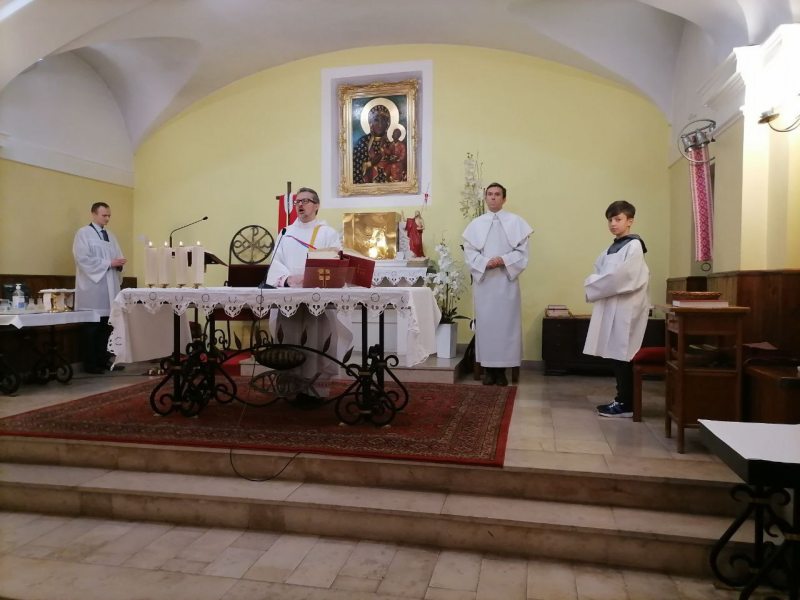
The action participants had yellow badges on their clothes like those worn by political prisoners in jails and held portraits of political prisoners in their hands. People delivered speeches and sang Belarusian songs.
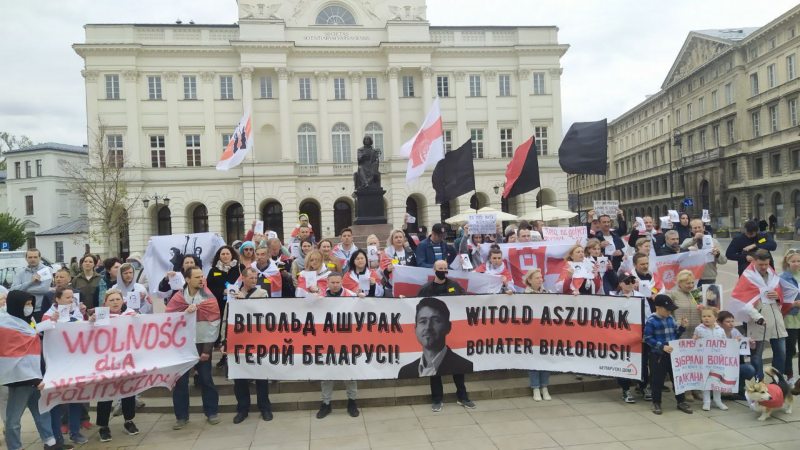
The office of Belarusian Radio Racyja in Bialystok, Poland, hosted a meeting devoted to Vitold Ashurak. The organizer of the meeting, human rights activist Uladzimir Khilmanovich, spoke about Vitold:
“He was my spiritual brother, I'm not afraid of that lofty definition. Because we were always near each other at various festivals, especially at the commemoration of the rebels of 1863 in Svislač, in Jakušoŭka, in the Lida district. And we crossed paths at these public events in Belarus. I felt a great energy and positivity of this man.”
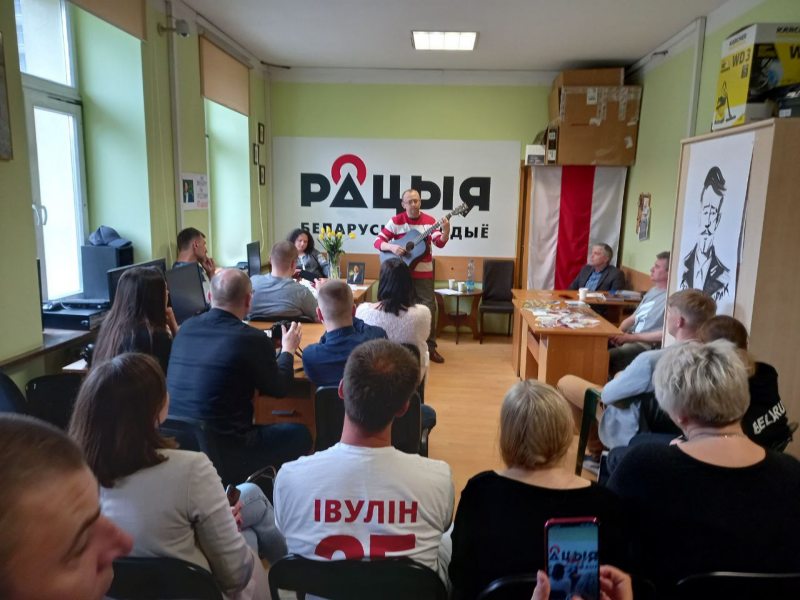
Also, those present wrote letters of solidarity to the Belarusian political prisoners. Poems dedicated to political prisoners were read from the stage.
In Bialystok, women marched with yellow flowers and tags with the names of political prisoners.
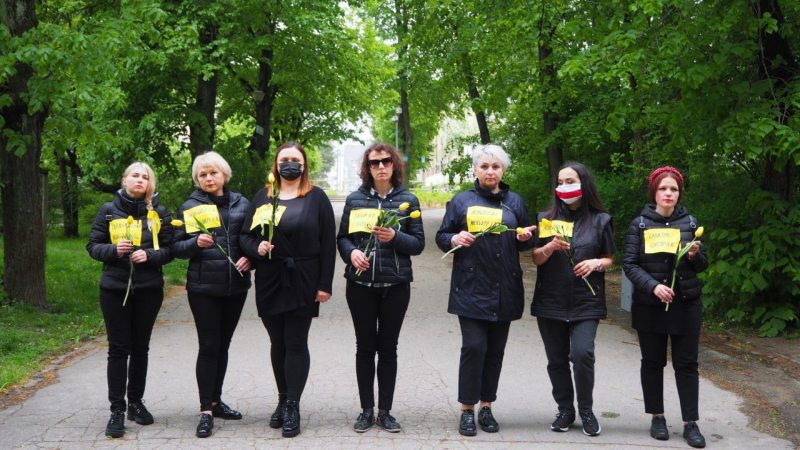
Belarusians gathered in the port of Batumi, Georgia, to express their support for political prisoners.
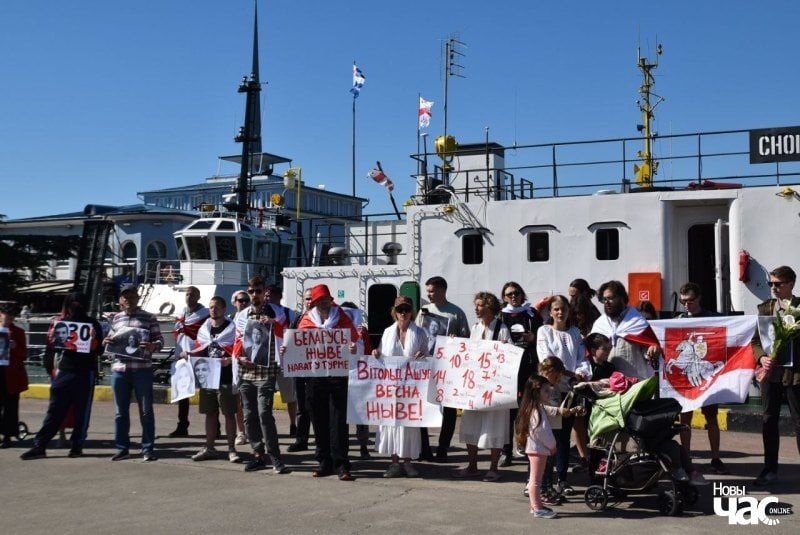
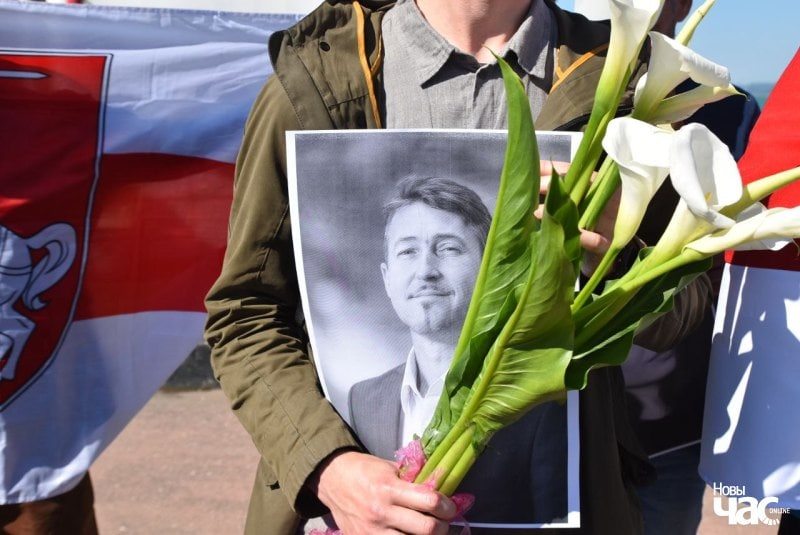
The Belarusian women from Georgia held a performance on the Black Sea for the Day of Political Prisoners. More than a thousand white-red-white ribbons became a symbol of the fates of those maimed behind the walls of prisons. The event ended with a simultaneous reading of the last letter to the mother of a true patriot of his homeland, Vitold Ashurak.
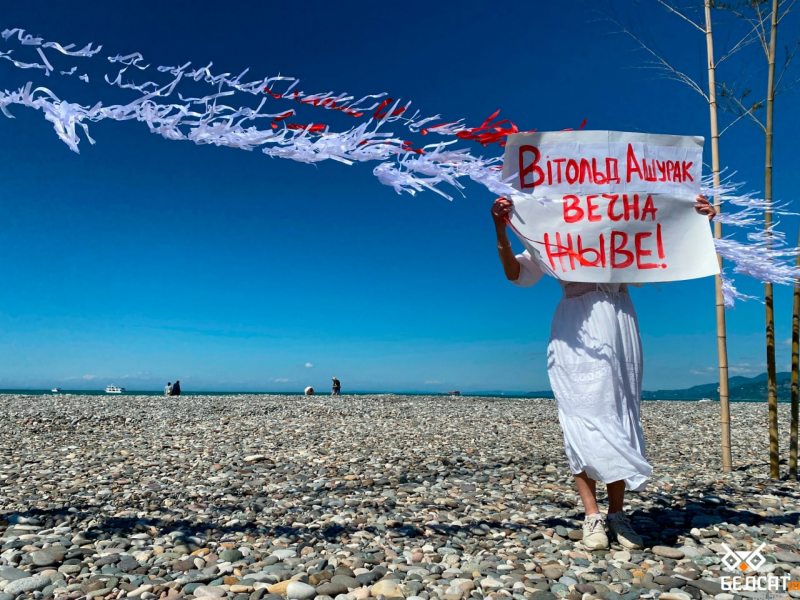
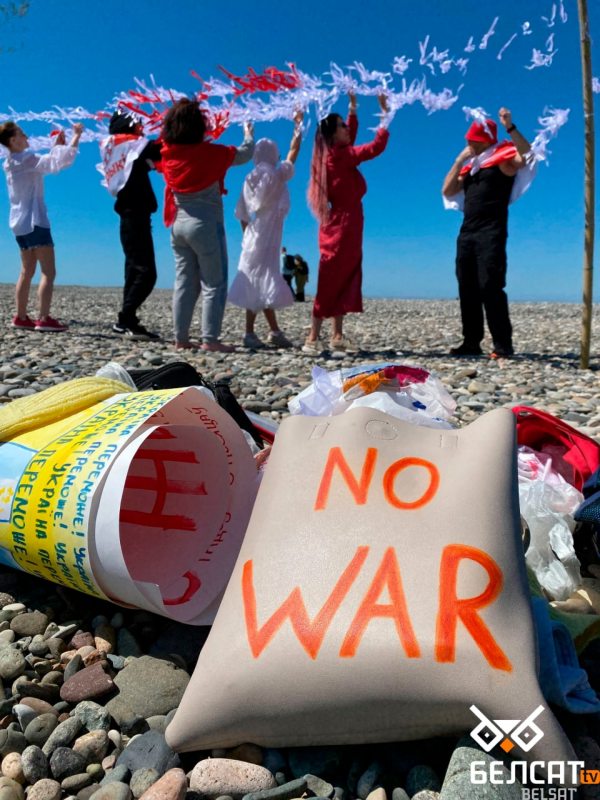
In Georgia’s capital Tbilisi, activists gathered together to sign postcards for prisoners.
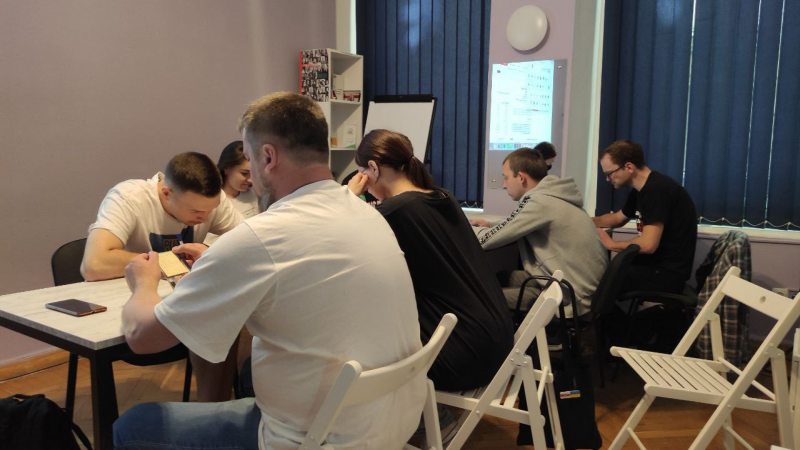
An action of solidarity on the Day of the Political Prisoner took place in Prague, Czechia, as well.
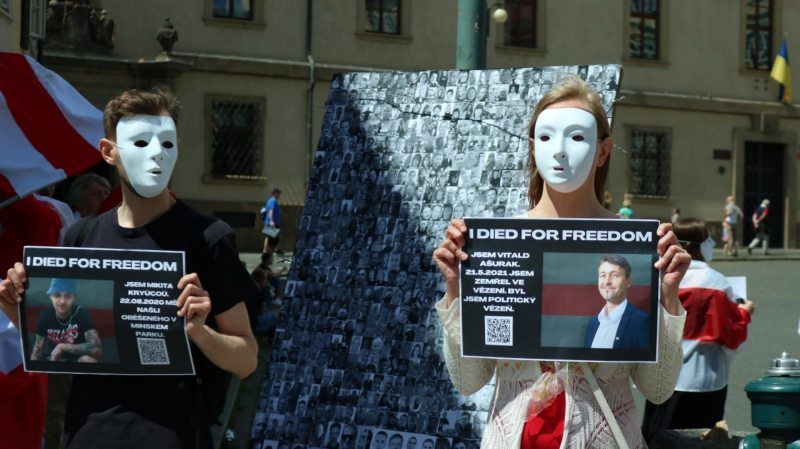
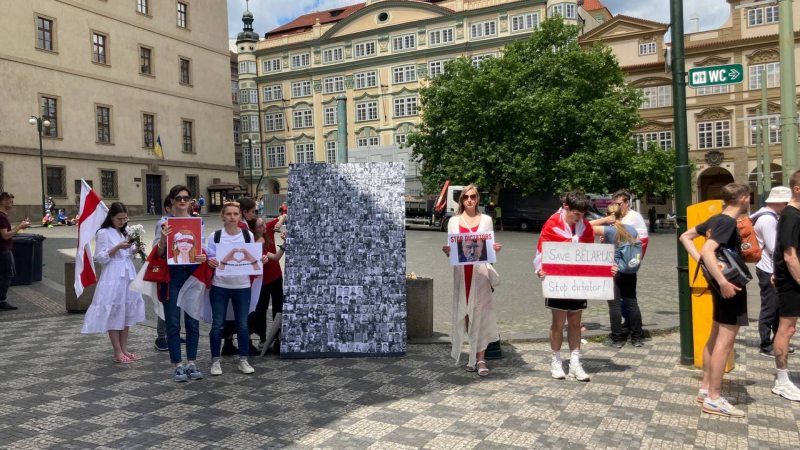
An action of solidarity with political prisoners took place in Vilnius, Lithuania.
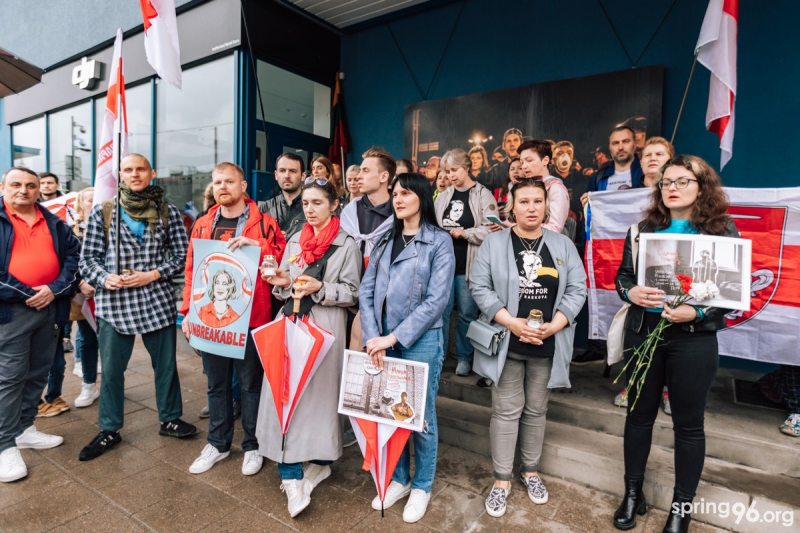
Activists in Kaunas, Lithuania also organized an action of solidarity.
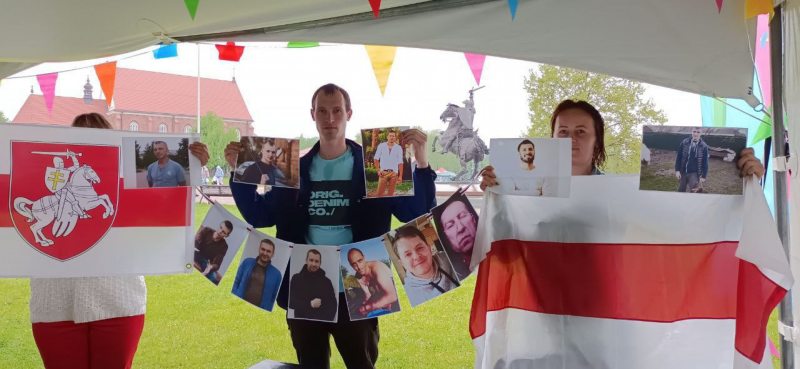
In Lviv, Ukraine, Belarusians gathered at the office of the Human Rights Education House and signed postcards for political prisoners as part of the Letters behind bars initiative.
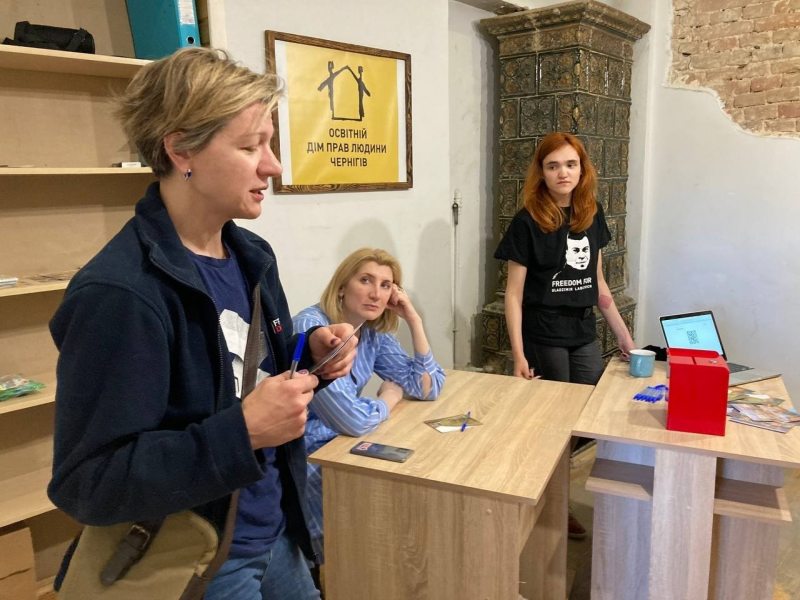
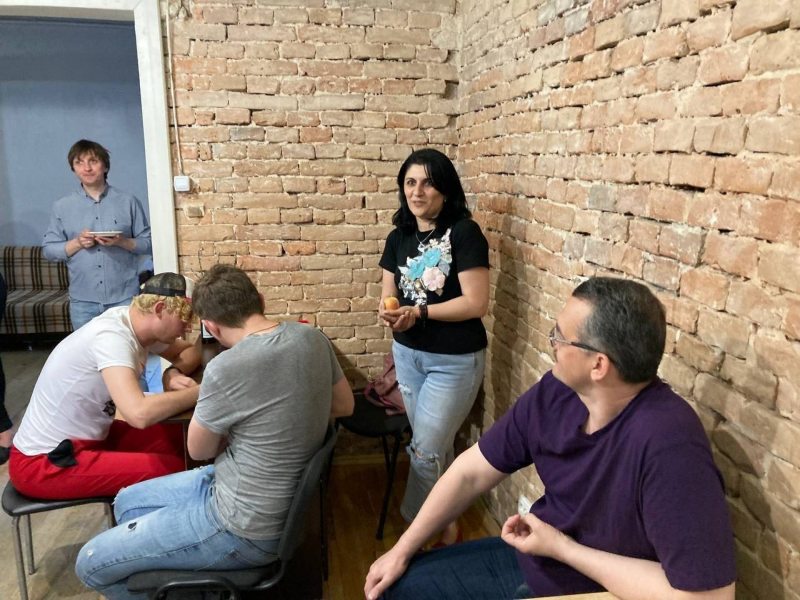
In Edinburgh, Scotland, representatives of the Belarusian diaspora read out the names of all political prisoners in Belarus.
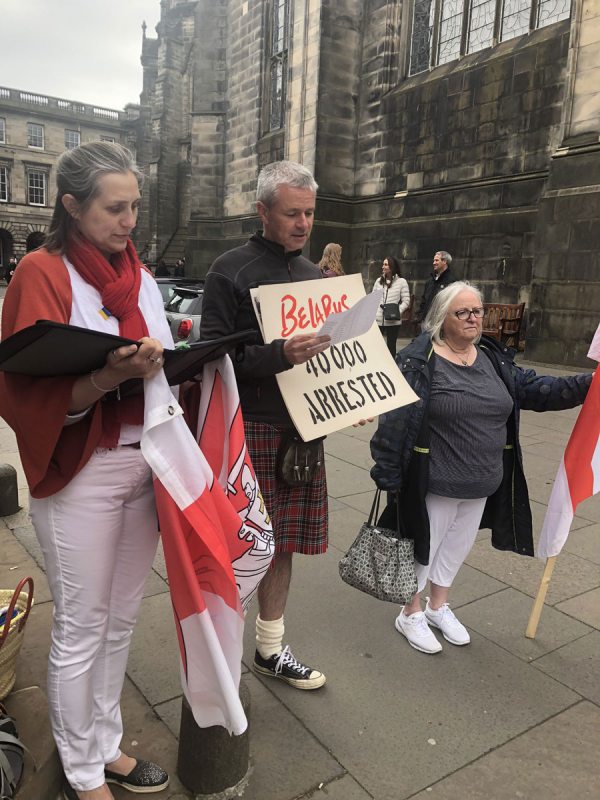
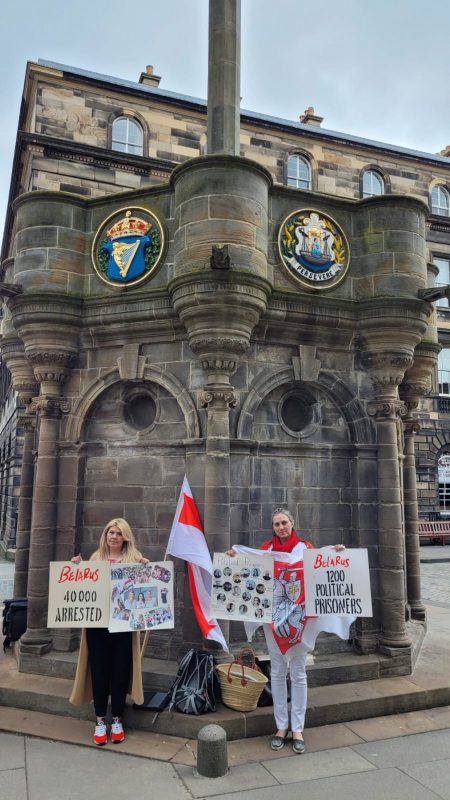
In Riga, Latvia, activists wrote letters to political prisoners:
“In two hours together we wrote 31 letters. They were ordinary postcards, drawings, and long, deep letters...” noted the organizers of the action.

In Temsa, Belgium, Belarusians held a picket and remembered all political prisoners, wrote letters to prisoners, and lit candles in memory of Vitold.
Ashurak.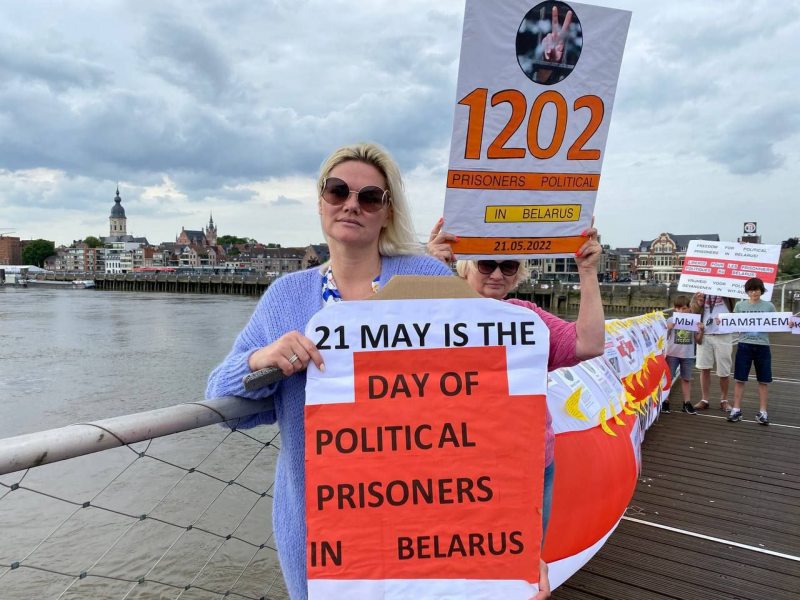
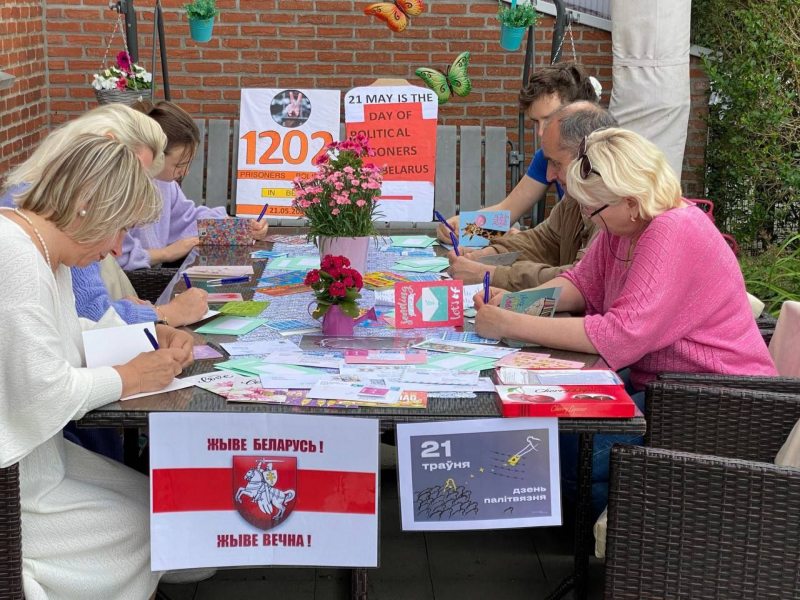
Political prisoners were also supported in the Kuyavian-Pomeranian Voivodeship of Poland.
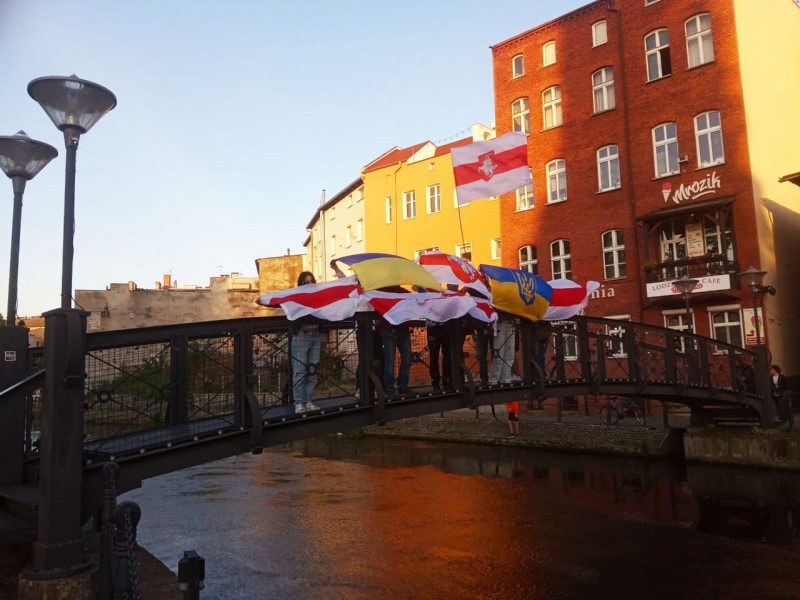
Belarusians took part in a solidarity action in Toronto, Canada.
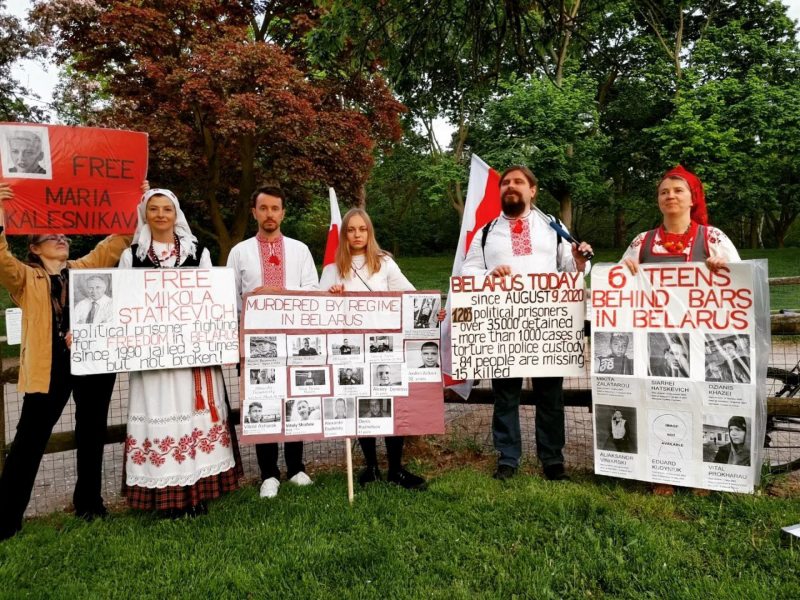
European politicians and diplomats, representatives of various embassies, and international human rights organizations spoke in support of the political prisoners and their relatives.
“Diplomats of the European Union and the United States express solidarity with the political prisoners in Belarus and once again demand their release and an end to political repression against the citizens of Belarus,” Polish Ambassador Artur Michalski wrote in his tweet.
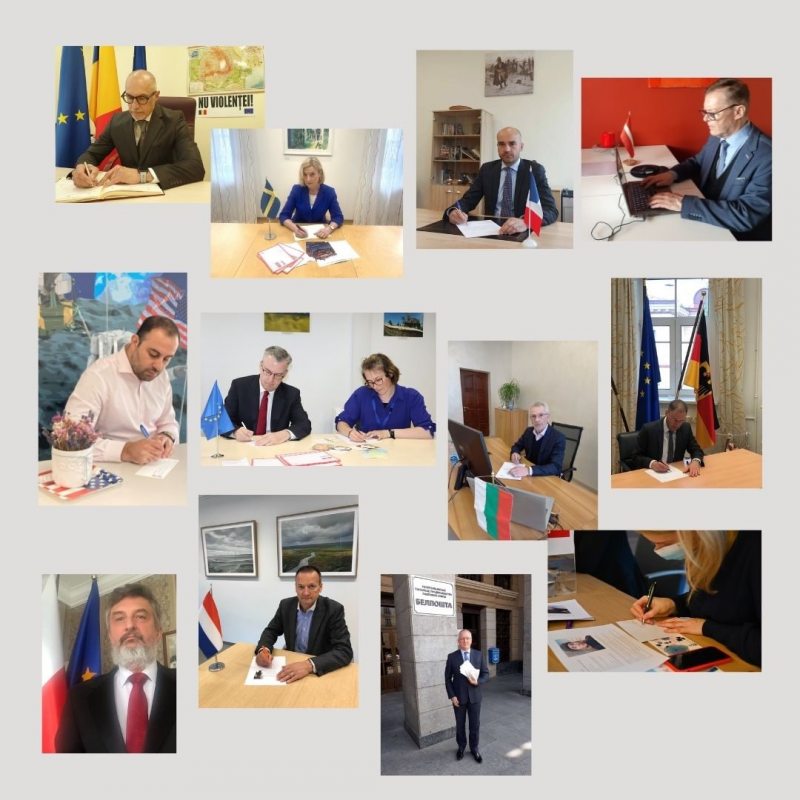
Prime Minister of Lithuania Ingrida Šimonitė posted a video on her Twitter, where the names of all Belarusian political prisoners are listed.
“Today we commemorate the Day of Political Prisoner in Belarus, and remember the death of Vitold Ashurak a year ago. Latvia condemns politically motivated prosecutions and calls on Lukashenko regime to release all 1204 political prisoners. #StandWithBelarus,” the Latvian Ministry of Foreign Affairs posted on Twitter.
European Union Ambassador to Belarus Dirk Schuebel wrote an open letter on his Facebook page:
“Today, on the Day of the Political Prisoner in Belarus as announced by the human rights activists, I would like to address, first of all, our dear friends from Viasna. Ales, Valiantsin, Marfa, Uladzimir, Leanid, Tatsiana, Andrei, you have devoted yourselves for many years to defending the fundamental values of mankind, insisting on the respect for the freedoms and rights of your fellow citizens, struggling to live in a Belarus in which the rule of law reigns and where there are opportunities to speak openly, without fear of being arrested. You were helping political prisoners and their families at your own risk, and for many months now, you have been political prisoners yourselves, as have many hundreds of your compatriots. Today and every day, similar to many people in Belarus and around the world, I think of you and wish you wholeheartedly that all Belarusian political prisoners will soon be free and safe. As the EU Ambassador to Belarus, my team at the EU Delegation in Minsk and I will continue doing everything in our power that this wish will come true.”
The UK Embassy posted a video on its Twitter account:
“On this day the UK reiterates unwavering support to all arbitrarily arrested for political convictions. Our thoughts are with 1201 wrongfully charged & convicted Belarusians, their families & friends.”
On the Day of Political Prisoners, Ambassador of the Czech Republic to Belarus Tomas Pernitsky sent letters and telegrams to five political prisoners of Belarusian human rights activists.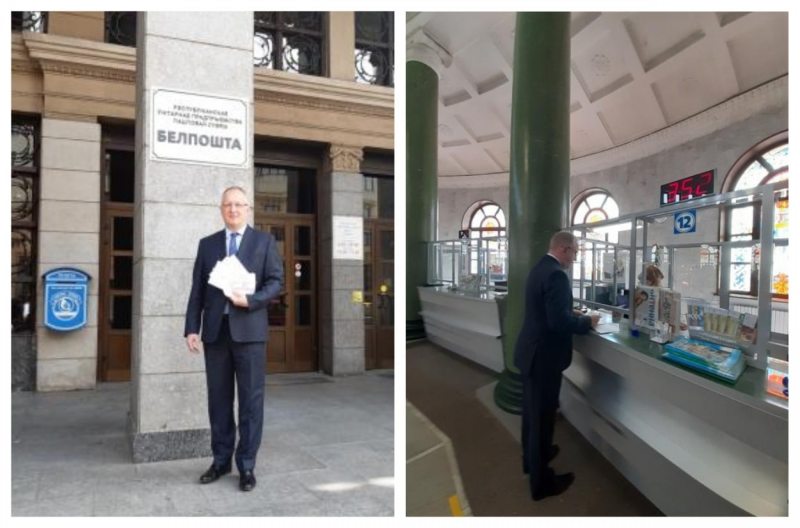
The Human Rights House Foundation marked the Day of the Political Prisoner with a number of posts:
“Today & every day we stand in solidarity, & we repeat our call to the Belarusian authorities to release them.”
The US Embassy stressed on its Twitter:
“More than 1,200 political prisoners sit in Belarusian jails today. Tens of thousands more have been held since the first arrests before the fraudulent 2020 election. We remember them all on this Day of the Political Prisoner in Belarus. All political prisoners must be freed.”
Artists and poets also supported the political prisoners.
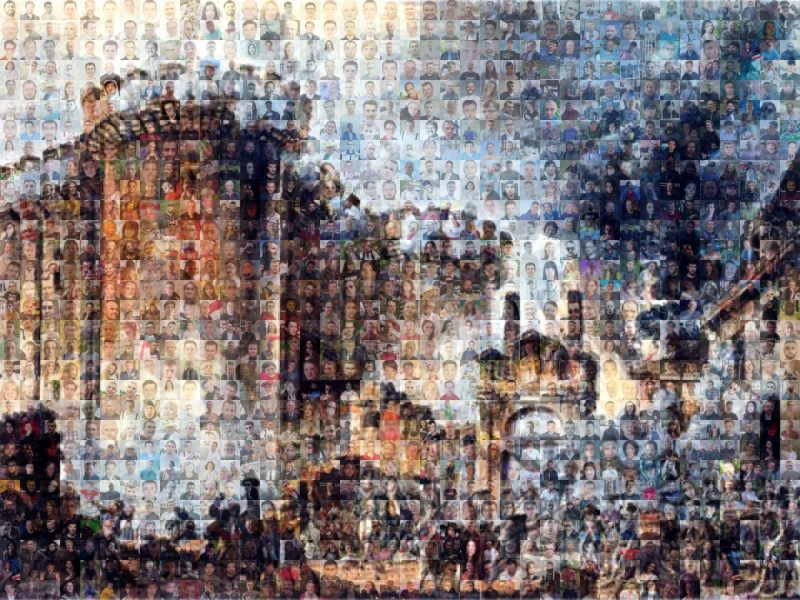
American filmmaker, screenwriter, and producer Ernie Barbarash created a mosaic of photographs of political prisoners.
In honor of May 21 being Day of the Political Prisoner in Belarus I created an image I call “BELARUS BASTILLE” - it’s a mosaic of Jean-Pierre Houel’s “The Storming of the Bastille” made of photos of the 1204* political prisoners behind bars in Belarus today #standwithbelarus
I made this image looking forward to an actual "Belarus Bastille Day" on which the doors of Okrestina, Volodarka, all the prisons & penal colonies open & all the innocent people imprisoned for wanting to rid their country of the dictator Lukashenko & his cabal are freed...” he wrote in his Twitter.
Belarusian PEN joined the Day of Solidarity with political prisoners in Belarus with a number of videos: poet, translator, and literary scholar Andrei Khadanovich read his poem dedicated to Aliaksandr Fiaduta, poet and translator Hanna Komar read a poem by Katsiaryna Andreyeva, poet and translator Yuliya Tsimafeyeva read her poem Letters, and poet and translator Tatsiana Niadbai read an excerpt from Maksim Znak’s Zekameron, a documentary novel.

















